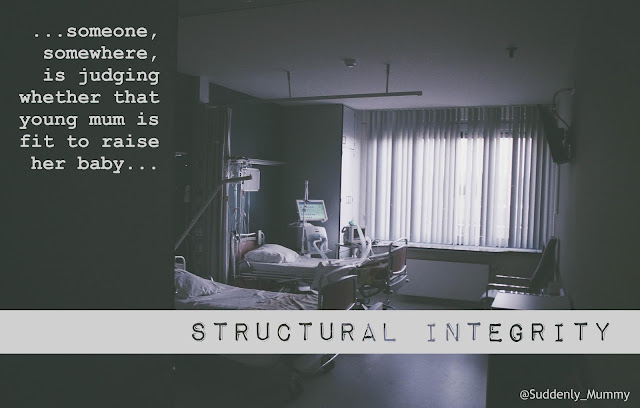Making Carers and Adopters Welcome
At the recent Home for Good Summit, we were all given a little pack of leaflets and information which, I admit, has been lying around on my kitchen counter ever since. This morning, while waiting for the kettle to boil and the toaster to pop, I idly leafed through the little colour leaflets inside, and came across one entitled "Supporting those who adopt or foster: A Care for the Family guide for churches".
I read it. I nearly cried into my coffee.
I'm not sure why really. For those foster carers, kinship carers and adopters who go, church ought to form a vital part of their support network. While I have heard sad stories, I must say that my church is excellent in this regard. I am not the only foster carer there, and recently we have started a little support group - we have only had one meeting but it was really lovely to talk and share and pray together and I feel very positive about it.
Not only that, but I have found that people who have no prior experience of fostering or adoption have gone out of their way to help me, support me and understand what is going on in my house. Of course, there can never be complete understanding, but does anybody really fully understand another's situation? The best we can do is listen, support, offer help. And that does happen for me. Only yesterday my friend's husband looked after my son all afternoon while we both went on a girly shopping trip with the babies. Today another friend took both the children for a couple of hours so I could get some much-needed tidying and cleaning done in the house.
The booklet contained a lot of quotes from actual carers and adoptive parents and I think I was moved in equal measure by both the positive and negative experiences they had had.
For instance:
"When we hit a really bad patch, the church pulled out all the stops to support us practically"
"The church has loved the children we have fostered and welcomed them"
"One lovely, childless, elderly lady was particularly supportive of me and our daughter. She told me I could ring any time, day or night."
But also:
"Our three foster children have been with us for two years now. They regularly come to church with us but no-one has ever invited any of them round to play with their children"
"Church is a difficult place to bring my boys as they don't fit the norm (having attachment issues)"
"Please don't say that just because they've been with us a few years 'Surely they should be all right now'"
The leaflet gives a decent, if necessarily brief, overview of the situations that lead to children being cared for or adopted, an introduction to some of the issues arising from poor attachment, abuse, neglect and trauma, and some expectation of what to expect from children who have been through such things. It is all expressed in a way that anybody could understand and, although it is obviously aimed at churches and those who attend or are involved in children's work, it would be a good, basic read for any community that is welcoming cared for or adopted children into its midst.
It explains why adoptive and foster parenting can sometimes be considered 'extreme' parenting, and why parents in these situations might need extra support. Quotes from foster carers and adopters highlight some of the main issues that regularly come up, such as people commenting on unusual parenting styles, or saying 'All children do that', or concerns around Mothers' and Father's day celebrations, or supporting families while they introduce their new children to the possibly unfamiliar experience of going to church.
Helpful suggestions are made: respect boundaries or confidentiality; train youth and children's workers; befriend the children; see beyond the behaviour; offer to make meals, help with housework or babysit; make your toddler group adoption and fostering friendly; take the lead off the parents/carers when deciding how to respond to surprising or unexpected behaviours; offer to act as an emergency back up if a crisis with a fostered child stops the foster parent from picking their other child up from football practice, for instance; consider offering financial support, especially where adoptive parents have had to give up work because of their child's needs; offer DIY help, and so on and so on. All excellent suggestions!
I was particularly pleased to note that three of the four recommended books are ones I have actually read - surprising considering how few I have read overall! I can highly recommend them too: 'Why Can't My Child Behave?' by Dr Amber Elliot, 'No Matter What' by Sally Donovan, and 'Home For Good' by Krish Kandiah.
I wish that everybody in every church could have the opportunity to read this little leaflet. In fact, forget churches, it's just a good leaflet full stop. I haven't yet managed to find out where I can get hold of more copies but when I do, I'll be getting a bag full!
Edit: The marvellous @ponkbag has found a link - you can get copies of the leaflet here.
Edit: The marvellous @ponkbag has found a link - you can get copies of the leaflet here.







Our church does their best, but people just don't know enough about fostering and adoption - this leaflet sounds fantastic and so helpful! If you find out how to get more copies, I'd be really keen to order some for our Pastor and church friends :)
ReplyDeleteMe too!
ReplyDelete